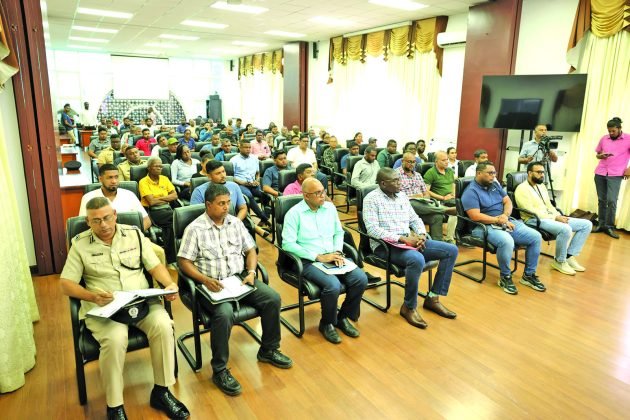Residents along the East Coast Demerara (ECD) corridor got some relief this week after Vice President Bharrat Jagdeo intervened in a longstanding issue: the dust, noise, and road damage caused by heavy-duty trucks. Jagdeo held a meeting with scores of sand and stone haulers on Thursday and delivered a blunt message – ease up on reckless driving and implement measures to curb environmental nuisances. “We have to stop the clouds of dust and the 2 a.m. engine roars that communities are suffering,” Jagdeo told the gathering, according to officials familiar with the talks.
The issue stems from the massive increase in construction material transport on the East Coast as Guyana’s building boom accelerates. Villages like Paradise, Mon Repos, and Lusignan have complained about convoys of uncovered trucks spilling sand, creating thick dust that affects air quality and health. Residents also report houses shaking due to speeding overweight trucks, and more accidents on the main road. “My yard and plants are always covered in sand now,” one Paradise villager said.
In response, Jagdeo – who is also General Secretary of the ruling PPP – instructed that trucks must be properly covered/tarpaulined to prevent spillage. He also pushed for staggered operating hours to avoid late-night disruption. Police have been directed to enforce speed limits and axle-weight regulations more strictly in the area. Additionally, the government is expediting plans to create a dedicated bypass route for heavy trucks so that residential sections of the ECD public road are less burdened.

Truckers, for their part, raised concerns about the conditions at the sandpits and delays that sometimes force after-hours trips. Jagdeo acknowledged their issues and promised to have the Infrastructure Ministry look into improving interior access roads. But he was firm that haulers must be considerate of communities. “Development cannot come at the expense of our people’s wellbeing,” he said. Both sides agreed to a monitoring mechanism: community representatives will liaise with transport associations and authorities to report any breaches. By the end of the meeting, there was cautious optimism – residents felt heard, and truck operators said they’d cooperate to be better neighbors.




